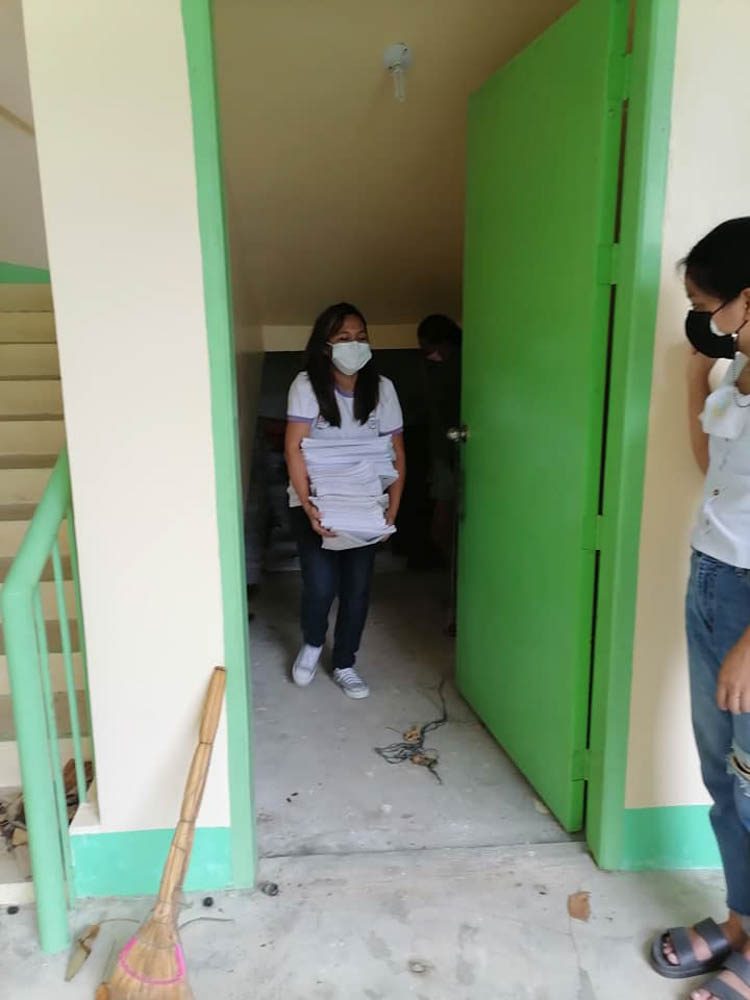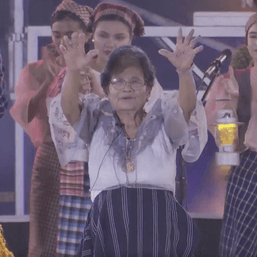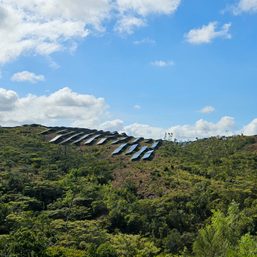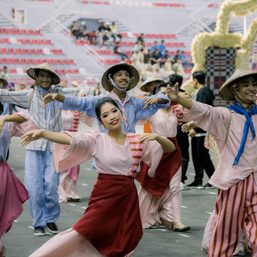SUMMARY
This is AI generated summarization, which may have errors. For context, always refer to the full article.

For 16-year-old Jeuel Albano, her last two years in high school should have been the best days of her teenage life. But just like other students in the country, she lost these potential high school experiences because of the COVID-19 pandemic.
As one of the students in Ilocos Norte preparing to return to classrooms in a limited face-to-face setting beginning November 15, Albano told Rappler in an interview on Wednesday, October 27 while she has mixed emotions about the setup, she didn’t want to spend the rest of the year learning from printed modules.
“It’s mixed emotions. Mostly, I feel excited and nervous also because it’s been almost two years since I last stepped foot inside a classroom,” Albano said in Ilokano.
Albano studies at the Dumalneg National High School, one of the 10 schools in the entire Ilocos region joining the pilot run of limited face-to-face classes. Of the 10, nine are in Ilocos Norte and one in Pangasinan.
These schools are the Alao-ao Elementary School and Pagdaggan Elementary School in Bangui town, and Bicbica Primary School, Buanga Elementary School, Godogod Elementary School in Pinili town.
The Dumalneg Elementary School in Dumalneg town and San Isidro Elementary School and Cacafean Elementary School in Marcos town were also selected for the program.
The four towns that host the schools are considered low-risk for COVID-19 and are under the least strict modified general community quarantine (MGCQ), according to the October 22 assessment of the provincial Department of Health (DOH).
The entire province’s average daily attack rate is considered low-risk at 3.16 per 100,000 population, according to DOH.
None of this seemed possible in the last six months when Ilocos Norte battled its worst COVID-19 surge fueled by the Delta variant. The province reached its highest weekly average of 273.6 COVID-19 cases in August before the numbers gradually went down to just 18.9 cases from October 15 to October 22.
At least 28 schools in the province were initially shortlisted to participate in the program. The government task force, however, reduced the list to only nine schools after a “series of safety assessments,” which included the readiness of facilities and well-placed health protocols, among others.
In the entire Dumalneg where Albano lives, there are no active COVID-19 cases. Bangui, Marcos, and Pinili towns have less than five active cases.
Abano said that she couldn’t wait to go back to school, noting that her motivation to learn has been affected by the printed module method.
“My motivation was low, it was not just there, unlike when you learn with others at school, there is a sense of unity and fun. I can also focus well as distractions are limited,” she said in Ilokano.
All students in Dumalneg town had no other option but to learn on the basis of printed modules as internet speed in the area is slow. Perched on the mountains, the town only has four barangays with a total population of 3,087.
Every Monday, a bulk of printed modules would be distributed to the households of students in the town, and it would take an effort from the community to distribute and retrieve them on time and ensure that none of the students’ modules have been mixed up.
Albano said she would strictly follow the health protocols and that she would get vaccinated against COVID-19 as well, once jabs for minors are available in their community.
In Pinili town, Dr. Ely Pascua, president of the Parent-Teacher Association (PTA) of Buanga Elementary School, said in a radio interview that they are excited for their kids to go back to school.
At least 25 pupils from kindergarten to Grade 3 will participate in the program at the school, Pascua said.
The school’s PTA will also rely on the cooperation of all sectors to ensure the program’s success.
On October 31, Pascual will lead a PTA meeting to identify how to raise funds for essential items like face shields, face masks, and alcohol, among others.
“We will guarantee that the usage of masks and shields of the students would be on the ratio of 1:1,” Pascua said in Ilokano.
Pascua said that they would come up with a schedule where parents and barangay health workers would be placed on duty at the school to ensure that health protocols are strictly followed.
“The pupils will also not be allowed to enter and leave the school without their parents,” Pascual said.
Sending back the children to school, especially for kindergarten students who have never seen a physical classroom, would “enhance” the children’s education, Pascua said.
“This is also a relief for the parents. While some are able to explain the lessons to their kids, there are those who cannot and have had a hard time doing so,” Pascua added.
Dr. Rheuel Bobis, COVID-19 focal person of the regional DOH, said that during the pilot run, health officials will closely monitor the participating schools’ implementation of health protocols.
Students, however, are not forced to participate in face-to-face classes, according to Cesar Bucsit, spokesperson of the Department of Education (DepEd) in Ilocos region.
“Kung papayagan [ng magulang] ang anak niya na sasali sa face-to-face classes ay puwede, pero kung hindi niya papayagan, hindi mandatory ito. Depende pa rin ito sa consent ng parents,” he said.
(Parents can allow or not allow their children to join the face-to-face classes. This is not mandatory. It still depends on parental consent.)
Valerie Talamayan, a DepEd Ilocos Norte information officer, said that all the local government units of the towns where the schools are located “have given their concurrence for the endeavor.”
“Even the PTAs of the schools affirmed their support and acceptance,” she said.
The consent of the parents of students and pupils at the nine schools were also obtained, added Talamayan.
Based on a Deped survey conducted in January, parents in Ilocos Norte gave “overwhelming support” for the resumption of face-to-face classes in schools, said Talamayan.
As early as February, Ilocos Norte called on the national government to lift the blanket ban on in-person classes and use a “localized approach” and gradually reopen in areas with low risk of COVID-19 transmission.
There are over 90,000 students enrolled in Ilocos Norte for school year 2021-2022, according to the data from DepEd. – Rappler.com
John Michael Mugas is a Luzon-based journalist and an awardee of the Aries Rufo Journalism Fellowship.
Add a comment
How does this make you feel?





There are no comments yet. Add your comment to start the conversation.